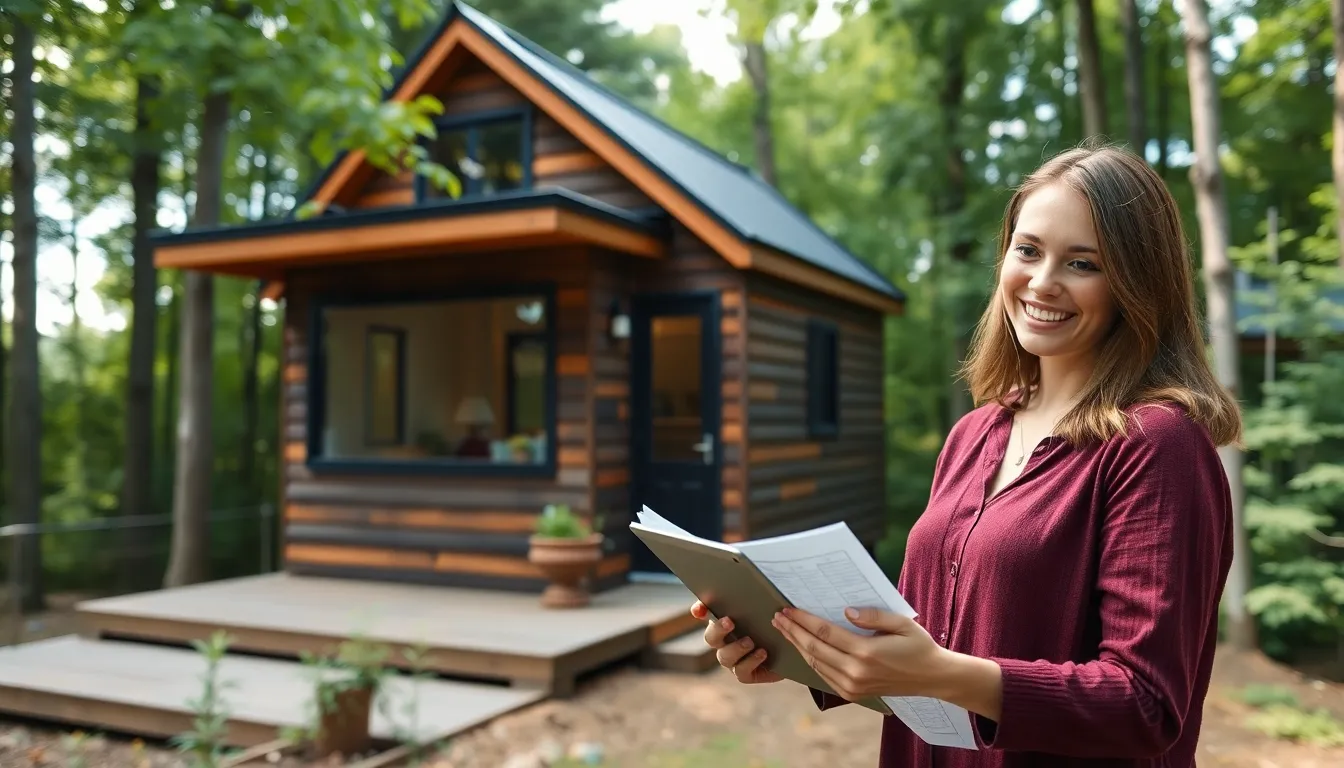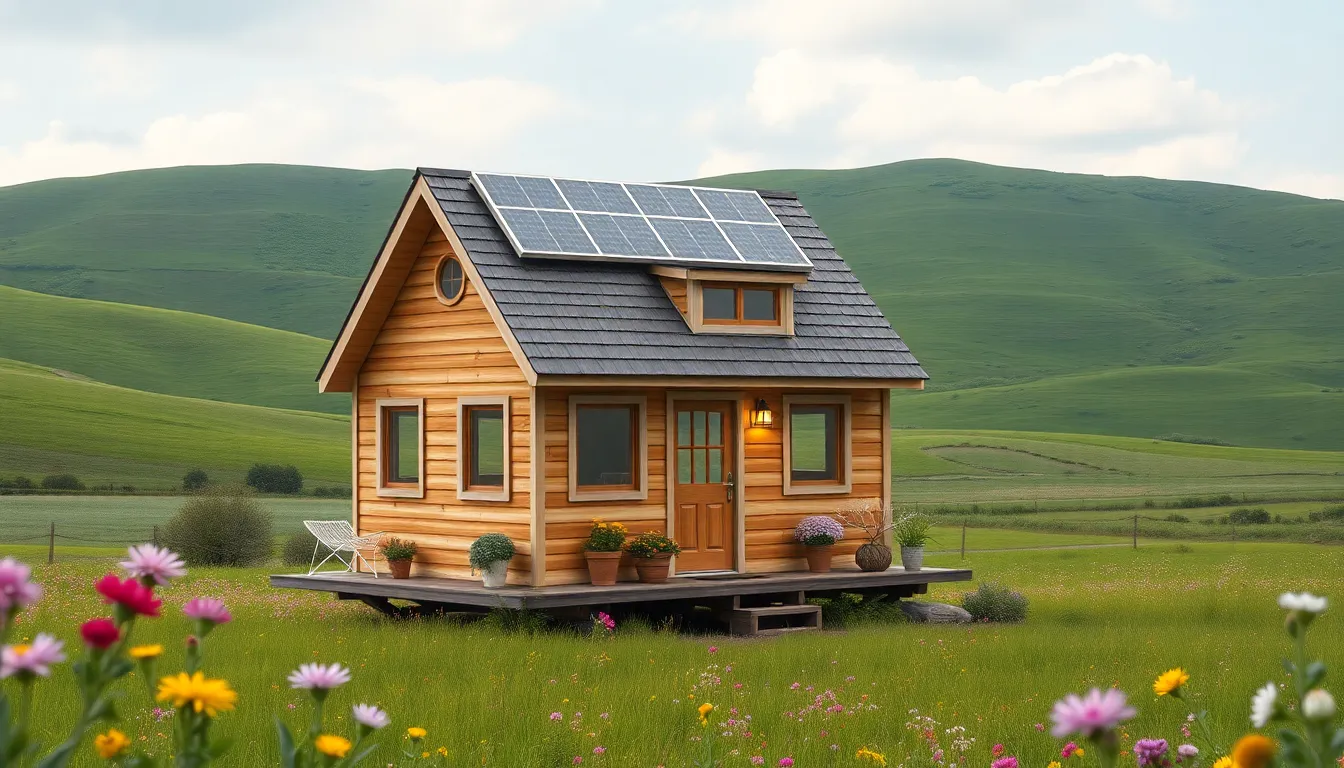Table of Contents
ToggleIn a world where bigger often means better, the tiny house movement is flipping the script. Imagine cozying up in a space that’s not just manageable but downright charming. With tiny houses popping up everywhere, it’s no wonder people are scratching their heads over tiny house mortgages. Who knew that living large could be so small?
Understanding Tiny House Mortgages
Tiny house mortgages provide unique financing options tailored for smaller dwellings. Various lenders offer these specialized loans, accommodating the needs of those embracing tiny living.
What Is a Tiny House Mortgage?
A tiny house mortgage refers to loans specifically structured for financing tiny homes. These mortgages cater to different financial scenarios, often accommodating homes that may not fit traditional lending criteria. Many lenders recognize tiny houses as legitimate residences, enabling borrowers to secure funds for their purchases. Some options include personal loans, RV loans, and specialized tiny house mortgages that offer competitive rates.
Differences from Traditional Mortgages
Tiny house mortgages differ significantly from traditional home loans. Most traditional mortgages require a substantial down payment, while tiny house options often demand less. Additionally, loan terms may vary; many tiny house loans operate on shorter repayment periods compared to their conventional counterparts. Lenders assess tiny homes based on factors such as size, location, and intended use. Flexibility plays a vital role; many tiny house mortgages allow borrowers to finance homes on wheels or permanent foundations.
Benefits of Choosing a Tiny House Mortgage
Tiny house mortgages offer several advantages that can align with evolving lifestyles. These benefits primarily revolve around financial flexibility and sustainable living.
Affordability and Financial Freedom
Affordability represents a key advantage of tiny house mortgages. Monthly payments typically fall below those associated with traditional home loans. Lenders often require lower down payments, making home ownership accessible to a broader range of buyers. Financial freedom emerges as homeowners spend significantly less on their mortgage, allowing them to allocate funds toward experiences or savings. Additionally, smaller loans mean less interest paid over time. With more manageable costs, individuals pursue other investment opportunities or pay down debt.
Reduced Environmental Impact
Reduced environmental impact stands out as a compelling reason to choose a tiny house mortgage. Smaller homes generally consume fewer resources, from construction materials to energy usage. Tiny houses often incorporate eco-friendly features like solar panels or energy-efficient appliances. An emphasis on minimalism promotes conscious consumption and reduces waste. Sustainable living proves appealing to environmentally-conscious individuals as it encourages a smaller carbon footprint. Lower energy needs not only support a healthy planet but also decrease utility bills, further enhancing financial savings.
Challenges of Tiny House Mortgages
Tiny house mortgages come with unique challenges that potential buyers must navigate.
Zoning and Legal Issues
Zoning laws often restrict where tiny houses can be placed. Many regions still adhere to traditional building codes, making it difficult to find suitable land. Homeowners may face restrictions on size, foundation type, or even intended usage such as full-time residency. These regulations can complicate financing, as lenders assess both the home and its location. In some cases, permission for tiny homes isn’t established, which complicates mortgages tied to them. Individuals should research local zoning regulations and legal requirements to avoid complications during the buying process.
Limited Lender Options
Limited lender options contribute to the complexity of securing a tiny house mortgage. Many traditional banks refuse to finance these smaller dwellings due to their unconventional nature. Some lenders specialize in tiny home financing, but they may not be widely available. Shorter loan terms and higher interest rates can result from limited demand. Buyers often seek alternative financing methods such as personal loans or RV loans to cover the purchase. Potential homeowners should identify available lenders who offer specialized tiny house mortgages to improve financing possibilities.
Tips for Securing a Tiny House Mortgage
Securing a tiny house mortgage requires careful planning and informed decisions. Several strategies enhance the likelihood of approval and financial success.
Researching Lenders
Identifying the right lenders is crucial. Many financial institutions specialize in tiny house mortgages, including credit unions and online lenders. Comparing loan terms, interest rates, and fees helps narrow down options. Check lender reviews and ratings to gauge customer satisfaction. Some lenders specifically focus on non-traditional homes, providing more flexible financing solutions. It’s wise to reach out to multiple lenders to get quotes, allowing for informed comparisons. Understanding each lender’s requirements and processes can also streamline the application experience.
Preparing Your Financial Documents
Organizing financial documents significantly impacts the mortgage approval process. Essential paperwork typically includes tax returns, pay stubs, and bank statements. Preparing a detailed budget that outlines income and expenses shows lenders financial responsibility. Credit scores also play a vital role; obtaining a credit report helps identify areas for improvement. If applying with a partner, ensure both parties provide necessary documentation. Having these items ready increases confidence during the application and highlights readiness to commit. Prioritizing financial transparency fosters trust with potential lenders.
Conclusion
The tiny house movement offers a fresh perspective on living, emphasizing simplicity and sustainability. With the rise of tiny house mortgages, more individuals can explore this lifestyle without the financial burden associated with traditional homes. These specialized loans provide flexibility and affordability, making it easier to transition into smaller living spaces.
While challenges like zoning laws and limited lender options exist, potential buyers can navigate these hurdles with thorough research and careful planning. By understanding their financial situation and exploring various financing avenues, they can successfully secure a tiny house mortgage. Embracing this lifestyle not only promotes financial freedom but also contributes to a more sustainable future.








